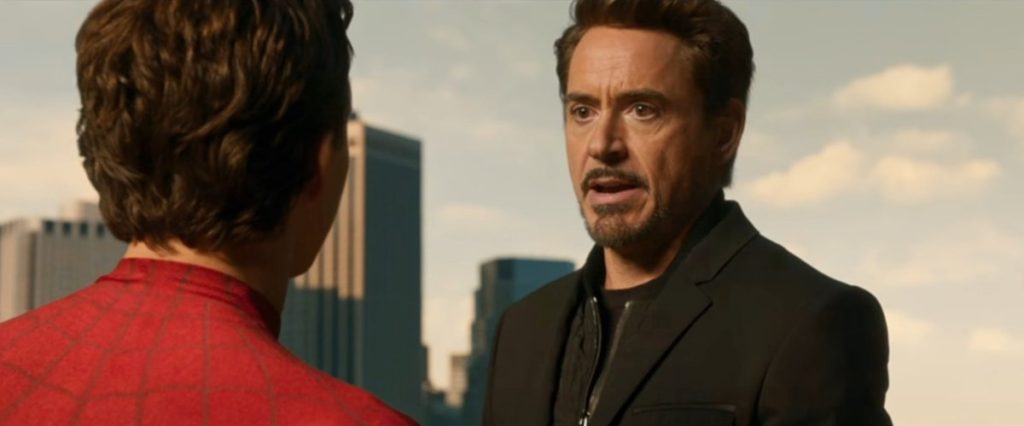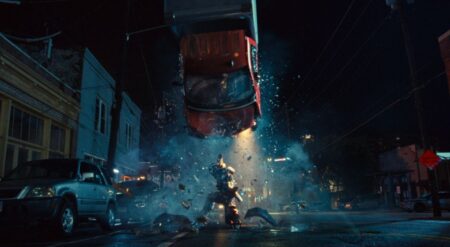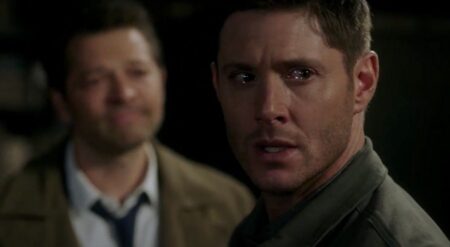
The MCU Spider-Man is one very fitted to this specific universe. While Peter has his organic powers from the classic spider bite, his other capabilities come from the advanced technology of the MCU. He is not the next Iron Man, but he partially continues Tony’s legacy as a brilliant inventor and hero. Like Tony, he is also starting to learn the danger of using this advanced technology and not letting it get to the wrong hands. Even though we haven’t gotten an explicit mention of Uncle Ben, his timeless message of “With power comes great responsibility” is consistently present in Peter’s journey. With the heavy presence of advanced technology and its repercussions in the new MCU Spider-Man films, we have a parallel to tech responsibility in the real world.
This aspect of the new mythos has been there from the start. Spider-Man: Homecoming‘s main villain, Adrian Toomes (Vulture), took advanced Chitauri technology to sell to criminals. Toomes did this with the intention of leveling out the economic playing field for people like himself. In the MCU, Spider-Man: Far From Home, however, we have a case of Stark Technologies’ advanced tools used to manipulate and dominate the masses rather than to pursue egalitarianism. Quentin Beck (Mysterio) and his gang of disgruntled Stark Industries employees aim to use Tony’s technological legacy to hoist themselves above the rest.
Mysterio is a brilliant villain for our sociopolitical time, particularly in the way he employs holographic tech. He and his team have achieved the pinnacle of distorting reality to make people believe what they want. Beyond the fake videos and fake news spouted today they use tech to distort what people can see plainly with their eyes. The ramifications of this technology are terrifying because they feel so real. Ironically, it is the real-world technology of simple video doctoring that ousts Peter as Spider-Man and frames him at the end of the film. Mysterio’s final trick is something that could easily happen in our world.
Whether it’s political advertisements with fake footage or quotes, doctored footage of notable figures, or even legitimately fake news, tech advancements have made it easier to dupe an unsuspecting audience. Irresponsible authority figures (like Beck or even the new Alex Jones-esque J. Jonah Jameson) in possession of this technology can have an unmitigated influence on people: spreading misinformation and manipulating the masses to do what they want.
Tech culture as we know it started with (and still maintains, to some degree, depending on whom you ask) a goal of leveling out societal inequities. The goal was to empower people with tools to make their lives easier. Much of what we’ve seen the past couple of years has been the opposite. Large tech companies often make their methods and strategies proprietary and store a gargantuan amount of users’ personal information for financial gain. Right now the tech players of the world are in a state of power and influence over the rest.
The knowledge needed for the new economy has not disseminated itself enough through the populace for an equal playing field. As a result, we have had innumerable incidents of tech being used for detrimental purposes. Too often, we as consumers are addicted to what tech provides us, with companies working to make their apps more addictive. Tech is increasingly defining how society runs, and that change is mostly coming from the self-interested top tier of society.
We have had a similar situation in the MCU since it started with 2008’s Iron Man. Many of the heroes of the MCU gained their powers as a result of advancements in science and technology. Tony Stark, as much as I love him, was still a gatekeeper. Many of the heroes in the MCU are effectively technological gatekeepers, hopefully, Spider-Man isn’t one too.
The only instance we see in the films of sharing advanced technology is the end of Black Panther, with the technologically-advanced Wakanda opening their science and robotics to the rest of the world. But Tony and the other heroes still always used their power and influence genuinely for improving the public good. Even though he, like tech firms today, kept many of his robotics private (as Iron Man 2 emphasized) he always used his talents in the pursuit of protecting the public. Did he always have the best judgment? Certainly not, and Tony himself would agree.
In the MCU’s Spider-Man: Homecoming Tony tells Peter he wanted him to be “better” than he was. Through observing him before Civil War and by getting to know him further, Tony knew that Peter had, overall, the right moral compass to be an Avenger who could be trusted with powerful tech. Tony’s care for Peter as a mentor was much more hands-off than it should have been, focusing more (as far as we know from the films) on giving general life/hero advice than lecturing on the responsibilities of using such powerful technologies. Peter, even though he has a heart of gold and is a scientific genius, is still an unassuming teenager who doesn’t fully grasp these responsibilities.

Far From Home is partially about Tony’s legacy and how it affects Peter and the rest of the world. Again, Peter is not the next Tony Stark/Iron Man but is still a scion to his legacy (hopefully Ironheart will be another scion to Tony in the MCU). With this legacy thrust on him in the form of EDITH, Peter tries to use it for the public good. However, with his lack of confidence, genuine humility, and the mishap of an accidental drone strike, Peter thinks he should stick to being a “friendly neighborhood” Spider-Man.
Mysterio is our hero’s foil in almost every way. He wants to use the technology to make himself, effectively, the new Tony Stark/Iron Man. He wants the spotlight, adoration, and attention from the unsuspecting masses. Peter, having learned his lesson in Homecoming about the importance of being a “friendly neighborhood Spider-Man,” is still focused on the responsibility of helping “the little guy.” He doesn’t think he’s ready for global responsibility.
Tony’s absence after Avengers: Endgame necessitates Peter taking up at least some of that responsibility. He doesn’t want to, however; giving the EDITH glasses to Beck, mistakenly thinking that he’s a responsible new hero figure who has people’s best interests at heart. Instead, Beck aims to use EDITH’s drones and holographic tools to engineer conflicts that he can swoop in to “save.” He doesn’t care who gets hurt, only that he receives the adulation.
In the pivotal and emotional scene with Happy on the plane, Happy helps Peter understand that the world is a scarier place than ever. After The Snap and with the advancements in technology that Tony is no longer there to steward, the world needs people like Peter. It’s a poignant scene that lets Peter know that although he feels overwhelmed facing these new and more insidious forces, he needs to face them nonetheless because he has both the tech smarts and the moral courage to do it.
Still, should Tony have left a global missile system to a sixteen-year-old kid who’s still only a rookie superhero? Yeah, definitely not. But this plot point was still crucial for Peter to learn that it was his duty to put his talents wherever they’re needed. Homecoming was about Peter learning that being a hero is about responsibility and not the glory of being an Avenger. Lastly, Far From Home is about Peter learning to expand that sense of responsibility to the world at large, especially when Tony’s tech is being disseminated amongst villainous actors.
Hopefully, the next MCU Spider-Man film features him against a villain using some more of this tech to actively manipulate and dominate the masses. This would keep in line with how the misuse of tech has engineered the main conflicts in the first two films. Whatever the case, MCU’s Spider-Man: Far From Home reminds us that with great advancements in technology, the ability to help people with them is only as good as the will to make it happen.






